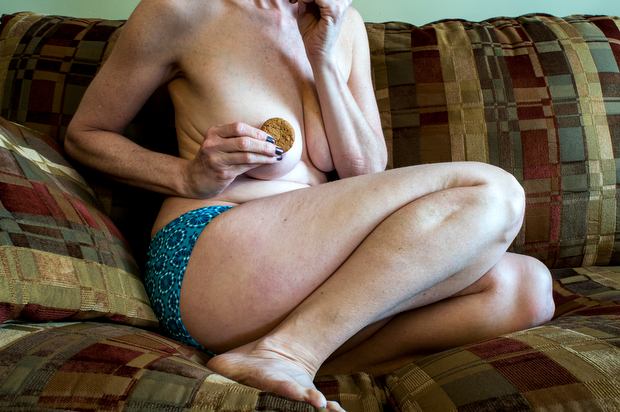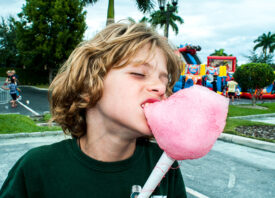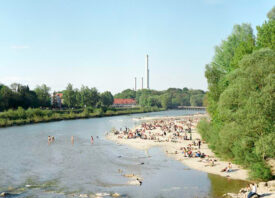Search this site
Sexy Self-Portraits of a Middle-Aged Woman Explore the Imperfections and Insecurities of Real Life
Andi Schreiber, a Westchester, New York, photographer of middle age, lives in a world of bright, clean color, spotless mirrors, and men’s suits hanging complacently in dry cleaning bags. But this is merely the comfortable backdrop for the sometimes uncomfortable series she calls Pretty, Please. Here, Schreiber turns an unflinchingly honest camera on her own flesh to explore her changing role as a female and as a sexual being. “I’m older now — and it shows,” she says. Undaunted, she continues, “I want my body to be useful. Disappearing is not an option.” Unlikely, given Schreiber’s wicked visual wit and glamor.
An offshoot of the series of stark, funny photographs Schreiber has made of family life since 2008, Pretty, Please turned into a separate project in 2012, focusing at last on the photographer herself. The pictures are taken on the go — while running errands, in the car, hanging around the house, going on vacation. Naturally enough, she also carries her gear into the bedroom. Sometimes she holds the camera in outstretched hand, selfie-style, but usually uses tripod and remote. The images may appear offhand, but the details Schreiber chooses convey meaning with precision: the spot of blood, the crushed strawberry, the purple bruise. Further, she has a pleasingly off-color mind, and seems to see sex everywhere. Her visual japes involve trees, balloons, ginger snaps, and toilet seats. Most importantly, her humor is a slash of disorder that runs through the series and paradoxically adds weight to the work.
Adding more playful gravity to her work is a sixties-seventies pedigree. She cites the playfully sexy set ups of photographer Jo Ann Callis from the seventies as an influence, and Shreiber’s work descends from the feminist performance art of that era, somewhere on the funny side of a continuum that runs from Carolee Schneeman’s anarchic meat orgies to the mighty earnestness of Marina Abramovic’s stares. Shreiber’s bright and unnerving light exaggerates her own vulnerabilities and makes the images feel contemporary, ideally suited, somehow, to the archetypal middle-class life that seems to hum along happily just out of frame.
Yet family life remains implicit in every image. The children may be hanging around somewhere, preoccupied for a bit, but you often feel a man watching. It’s a neat flipping of the idealizing male gaze — in contrast this with the smooth male-generated odalisques of art history that make woman into highfalutin cheesecake, Schreiber’s photographs explore the imperfections and insecurities of real life.

















